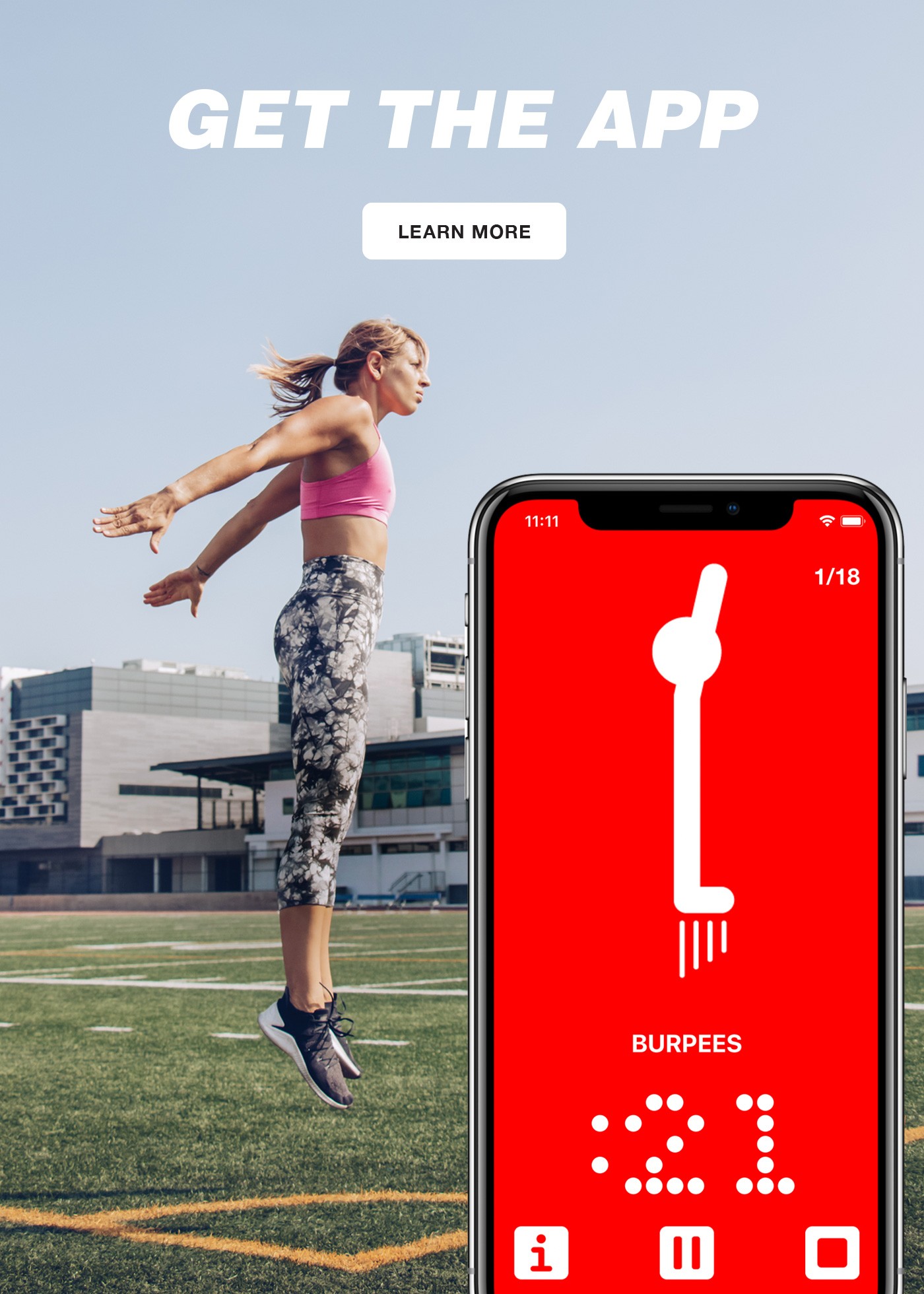I have a confession to make.
Despite knowing better, over the past couple of years I fell deeper and deeper into the “carbs are bad” fitness trend.
Now, I knew when I first started hearing about the low carb fad that it was just that: a fad. I knew carbs were crucial to a healthy, well rounded, diet, yet I let myself demonize them anyway. And most of all, I knew carbs were absolutely crucial for athletic performance, yet I kept ignoring the evidence, despite knowing better.
And I wasn’t alone—other performance-focused fitness lovers and athletes began to fall into the low carb trap over the past few years as well. Writers like Adam Bornstein and Jason Ferruggia have recently talked about their own experiences with the low carb diet trend, and the success of Eat to Perform, a site pretty much dedicated to helping athletes add carbs back into their diet in order to improve their athletic performance as well as their overall health, is pretty telling as to just how many athletes are dealing with this issue.
Yet this isn’t to say that low carb diets have absolutely no place for anyone—in fact, if you’re overweight and sedentary, a diet low in carbohydrates can definitely help you lose weight. And if you only do light or moderate exercise, a low carb diet may be right for you as well.
But if you train like an athlete, you have to eat like one. And that means embracing carbs.
Here are 5 reasons why you should eat carbs and not treat them like they’re the root of all evil:
Carbs give you energy for your workouts
If you’ve ever tried to work out on an empty stomach or late in the day after a really low carb day, you might have wondered why your performance suffered so much, and why you felt so incredibly drained during your workout.
I’ve tried to work out without having enough carbohydrates beforehand, and boy did my workout suffer. That’s because carbs are your body’s preferred source of energy, and without them, your athletic performance will undoubtedly go down.
Carbs give your body the energy it needs to absolutely crush your workout. They help you work harder and longer than you would have been able to without carbs.
So if you’re taking on a brutally tough workout like the 100 burpee challenge, make sure to eat enough carbs beforehand! You’ll be amazed at how much more quickly you begin to improve when you’re giving your body the proper fuel it needs to work as hard as it can.
Carbs help you focus
Ever had a real low carb day (whether on purpose or not) and had trouble concentrating? That fuzzy headed, inability to focus feeling is due to your brain not getting enough carbs to function at its peak.
In her book Power Eating, Susan Kleiner, PhD, RD explains that if your brain cells are deprived of carbohydrates (and therefore glucose), “your mental power will suffer, and because your brain controls your muscles, you might even feel weak and shaky.”
Not only will you feel weak and maybe even dizzy or nauseous, you also won’t be able to think straight with too few carbohydrates in your diet.
So anytime you have something really important to think about, whether you’re making important business decisions or studying for a test, do not fully deprive yourself of carbs. You just won’t perform as well mentally without them.
Carbs keep you from getting cranky
Just like carbs affect your mental ability, they affect your mood as well. Not giving your body enough carbs can make you feel fatigued and super cranky, not good for either physical or mental performance.
That’s because when you’re not giving your body enough carbohydrates to function at optimal levels, you just don’t feel that good. And not feeling good makes just about anyone cranky.
So the next time you find yourself constantly feeling grouchy for no reason or snap at someone without a good cause, you might want to reevaluate your macro levels (i.e. your levels of protein, carbohydrates, and fat) and see if you need to up your daily carb intake.
Carbs help with recovery
While most people know to down a protein shake immediately after a workout, it’s less well known that you should combine your protein with a good amount of carbs to further enhance recovery.
That’s because recovery is basically the process of replenishing muscle glycogen—the more glycogen you can produce immediately after your workout, the harder you’ll be able to work out the next time you train.
And the best way to replenish glycogen? To have a mix of protein and carbohydrate right after your workout.
This is also why you’ll see bodybuilders eat high glycemic carbs immediately after a workout like white rice, white potatoes, and even sugar—because these types of carbs are easily absorbed by your body, and therefore help you recover faster.
Ideally, you’ll have a 3:1 ratio of carbohydrate to protein as soon as possible after you exercise to help jumpstart the recovery process.
Carbs help build muscle
Yes, I know that not everyone wants to build muscle, but if it is your goal, don’t think that protein alone will get you there. Your body needs carbs, and lots of them.
To build muscle, consume 4.5 to 7 grams of carbohydrate per kilogram of body weight daily (divide your body weight by 2.2 to get your body weight in kilos, then multiply by 4.5 to 7).
That means that if you want to build muscle and currently weigh 130 pounds, you should be eating approximately 265 to 413 grams of carbs per day, and if you weigh 150 pounds you should be eating approximately 300 to 480 grams of carbs per day.
That’s far more carbs than the typical health conscious person eats on a daily basis, but if you want to build muscle, you’ve got to feed your body right.
Get stronger and faster with carbs
If you’ve been avoiding them, adding carbs back into your diet can help you get stronger, faster, and even leaner. They can help you focus better, improve your mood, and will definitely help you become a better athlete overall.
But of course, as with anything, don’t take this as an excuse to overdose on pizza, donuts and everything in between. While having a treat here and there is a healthy part of any 80/20 nutrition plan, it’s all too easy to let yourself have too many carb free-for-alls and end up gaining unwanted body fat as a result.
But if you’re smart about what you eat, keep your portion sizes in check, and make sure to group a big portion of your daily carbs around your workouts, your mental and physical performance will skyrocket with carbs.
Because remember, food is fuel!



Ahhh so refreshing to read Krista.
I was on the Primal train for 2 years. Its crazy looking back at photos from them, I look emaciated but strangely I still remember thinking I was fat and needed to lose weight (but that’s another can of worms).
I’m a big fan of carbs again now and feel so much better. The low carb thing seems go have good short term effects but long term it’s pretty damaging.
This is a really good article, I am highly active but I don’t know if I eat enough carbs – I would just rather eat other stuff like proteins or veggies or fats. However when I think if carbs, I generally think of the typical, bread, cereal etc. In your photo you have oats, fruit, quinoa, all of which I do eat a decent amount of, I just don’t eat bread or cereal. So would you recommend that I also add these to my diet? What do you count as “carbs”?
Good stuff! Good notes for athletes.
Nutrition has to be split from what people want to do to “lose weight” and what it takes to be an athlete or perform.
Obviously, I think the “athlete” segment of America is outnumbered by the number of people who have weight to lose, so the larger majority need to hear how carbs *can* be hurtful – especially in the huge excesses that people eat them (not the good carbs either).
The best / simplest way I’ve heard it said is that “carbs are growers”. If you’re using your muscles, they’ll grow them more. If you mostly sit around and do nothing, then it’s going to “grow” your fat cells.
Great article! Thanks for talking about this. There are way too many people still on the low carb train. Maybe next you could explain the best sources of carbohydrates:)
Excellent article (blog post) Krista and it can be very easy to fall into the “Carbs are bad” camp.
Over 12 years ago I was heavy into marathoning, averaging over 70 miles per week running and long distance cycling, 300 – 350 miles per week. The big fad was Adkins and South Beach, high protein/low carb diet. A number of people I work with that were into fitness, said, if I really wanted to have a breakthrough marathon, I needed cut my carbs. My normal response would be when I see the riders at the Tour de France or the elite marathon athletes from Kenya eating low carb diets then I’ll see about changing my diet.
At that time I was eating about 4,000 calories per day just to maintain weight. If I missed a snack or didn’t eat enough carbohydrates, my workouts showed. More trainers and fitness bloggers need to remind their clientele that what is good for one person isn’t always good for another. And if you are going to push hard to complete in any sport, proper carbs consumption is an essential part of the nutritional plan.